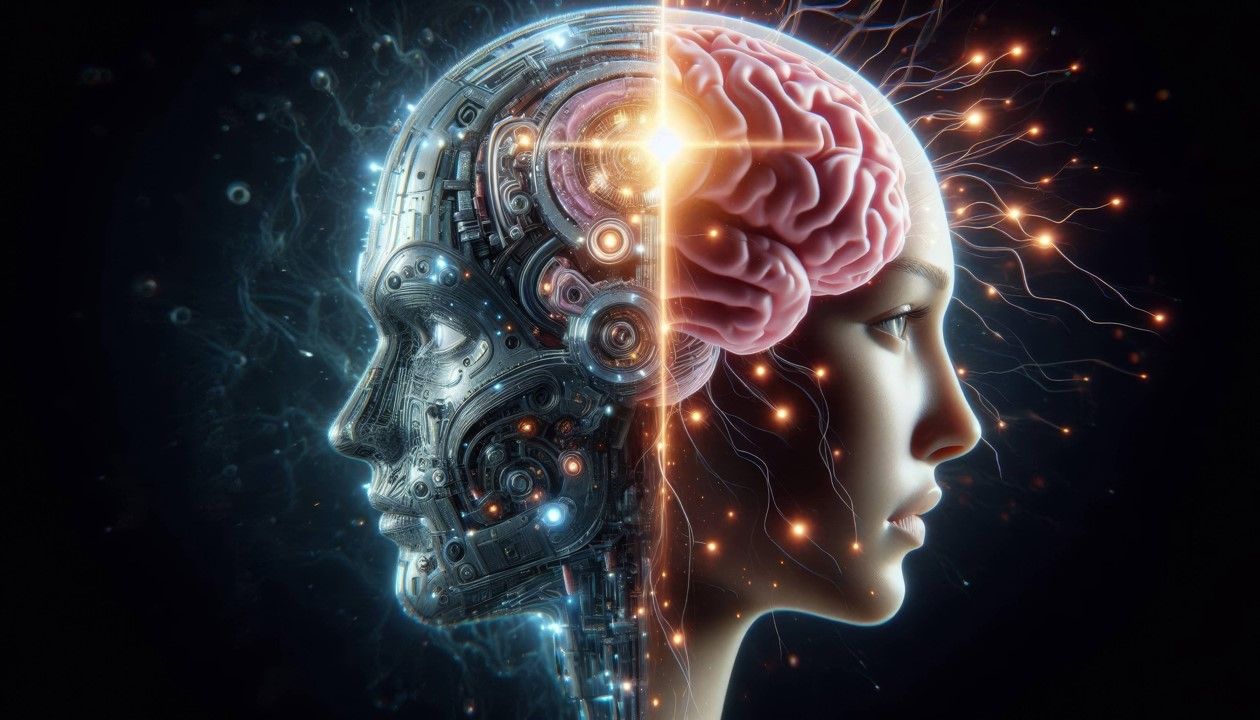As we witness the rapid evolution of technology, it’s natural to wonder about the future. Will Artificial Intelligence (AI) eventually outsmart human intelligence (HI)? Are we hurtling towards a world where machines call all the shots?
Understanding the relationship between AI and human intellectExternal link:open_in_new is crucial in today’s fast-paced technological world. It’s no longer just a concern for experts; it affects us all. As AI capabilities merge with our own, they’re reshaping society in various aspects, such as work, personal life, and ethics. Navigating this intertwined landscape is key to shaping our future wisely.
What sets human intelligence apart from AI?
The things that make us uniquely human, our capacity for creativity, empathy and emotional intelligence set human intellect apart from AI. Unlike AI, which follows set rules and algorithms, humans possess the innate ability to think critically, adapt to new situations and express complex emotions.
Human intelligence isn’t just about crunching numbers or solving puzzles; it’s about the human experience. Connecting with others, understanding their perspectives and collaborating toward common goals are all skills. Whether through art, music, literature or scientific discoveries, human intellect continues to shape the world in deep and meaningful ways.
Key Differences
Learning & Reasoning: AI learns from vast datasets to find patterns, while human intelligence integrates multiple cognitive functions like memory, perception, and abstract reasoning to solve problems and learn from experiences.
Speed & Focus: AI can process information and perform tasks with incredible speed and sustained, unwavering focus, whereas human attention is more flexible but can be prone to distraction and fatigue.
Emotion & Empathy: Human intelligence is characterized by deep emotional capacity, intuition, and empathy, which influence decision-making and interpersonal interactions. AI can simulate emotions but does not truly feel them or have the capacity for genuine empathy.
Creativity & Adaptability: Humans possess an innate ability for creativity, innovation, and adaptability, allowing for unique solutions and responses to novel situations. While AI can generate content, true, authentic creativity with intent remains a human strength.
Problem-Solving: AI relies on logic and precision to solve problems based on data. Humans approach problems with a combination of logic, intuition, and a deeper, contextual understanding, especially for abstract or subjective challenges.
Complementary Strengths
Collaboration: The future is often envisioned as a collaboration where AI's data-processing power and speed are combined with human creativity and judgment to achieve better outcomes in fields like medicine and creative arts.
Efficiency and Innovation: AI can handle routine, data-intensive tasks, freeing up humans to focus on more complex challenges requiring higher-level thinking and innovation.
Augmented Capabilities: In essence, AI can be a powerful tool that augments human intelligence, allowing humans to make better decisions, solve more complex problems, and achieve results beyond their individual capabilities.
Challenges and limitations of AI vs. HI
As we further explore Artificial Intelligence vs human, we must recognize that both encounter challenges alongside their strengths. While AI holds promise for improving efficiency and enhancing our quality of life, it also introduces ethical concerns such as bias and privacy issues. Responsible AI governance is essential to address these issues effectively.
Additionally, while AI demonstrates remarkable capabilities in tasks requiring speed and precision, it falls short in areas that require complex decision-making, emotional understanding and creativity compared to human intelligence.
In contrast, human intelligence faces its own set of challenges. Human biases and errors in decision-making can lead to flawed judgments, while the subjective nature of human cognition adds layers of complexity to understanding and addressing societal issues.
To navigate these challenges, transparency, accountability and inclusivity must be prioritized in both AI development and human decision-making processes. By integrating diverse perspectives and ethical frameworks into designing and implementing AI systems, we can ensure that AI and HI work together to serve the common good and uphold fundamental human values.



